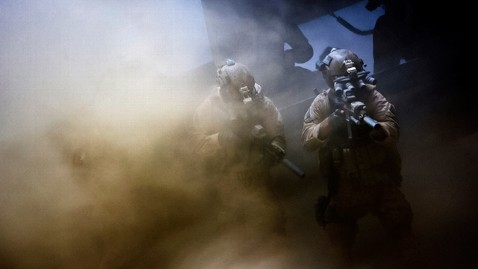
Verizon CEO Lowell McAdam at his keynote presentation.
(Credit:
CNET)
LAS VEGAS--HD Voice has suddenly become a hot topic at this year's Consumer Electronic Show.
The feature, which significantly enhances call quality by improving voice clarity while blocking out background noise, has been long touted by the wireless carriers. Widely available in Europe for years, the U.S. carriers have lagged behind.
T-Mobile said yesterday that HD Voice was now available on select phones in its lineup. PC Mag reported that AT&T was shooting for a launch some time this year. Now Verizon has stepped in, and told CNET that it would offer the feature in 2014.
Verizon will wait until it moves its voice service to the LTE network, according to Mike Haberman. The company plans to have voice-over LTE by the end of the year or early 2014. Currently, data goes over LTE, while the voice call still runs over its 3G network. Haberman said the carrier would support its 3G network through the rest of the decade.
While one of the key benefits of voice-over LTE is a reduction in cost and traffic, Haberman said the company is more interested in the potential services that can be tied into voice with VoLTE.
As for HD Voice, he said Verizon wouldn't offer it until there was a consistent quality of service.
HD Voice continues to travel on a rocky road to the consumer. Sprint Nextel made it a focal point when it launched the feature in the Evo 4G LTE in April, even having actor Keifer Sutherland record a crystal-clear call in a demonstration. But since then, the initiative has sputtered.
Sprint told CNET that it has completed one trial market, and the users can see a few more markets open up in the coming months.
A key problem with HD Voice is the lack of adoption. HD Voice only works if both phones have the feature and are in an area where the network supports it. Miss one component, and the call goes through without any enhanced features.
So even if the Evo 4G LTE supports it, only other users with the same phone can access the feature, and they both have to be in the single trial market. That narrows down the user base considerably.
T-Mobile has said its HD Voice feature will run nationwide through its HSPA+ network. It's also available on three phones: the Samsung Galaxy S III, HTC One S, and Nokia Astound.
Verizon, however, isn't feeling any heat to bring out HD Voice.















